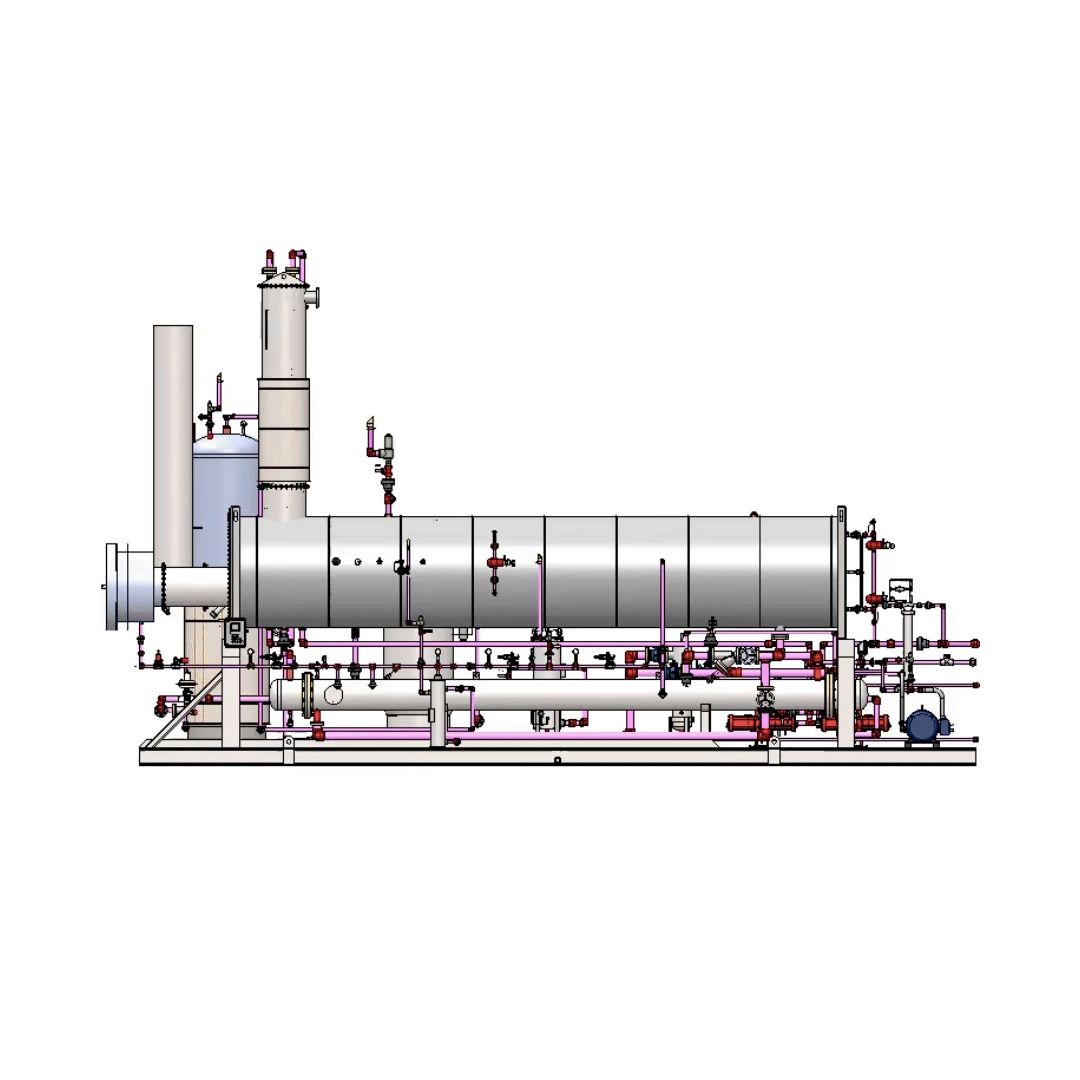Glycol dehydration is a proven method for removing water vapor from natural gas, preventing pipeline corrosion and hydrate formation. Our advanced Glycol Dehydration Units are designed for optimal performance, utilizing triethylene glycol (TEG) or tetraethylene glycol (TETRAEG) to absorb moisture from the gas stream.
The process begins with lean glycol (highly concentrated glycol) entering a contactor tower, where it interacts with wet natural gas across multiple trays or packed media. As the glycol absorbs water vapor, it becomes rich glycol, which is then pumped to a reboiler for regeneration. Heat removes water from the glycol, reconcentrating it for reuse. Stripping gas can be used to achieve higher glycol purity levels (up to 99.9%) for enhanced dehydration efficiency.
Key System Components:
- Absorber (Contactor Tower): Where natural gas meets glycol for moisture removal
- Heat Exchangers: Optimize energy efficiency and glycol temperature control
- Glycol Pumps: Ensure consistent circulation through the system
- Reboiler & Regenerator: Removes absorbed water and reconcentrates glycol
- Filtration & Separation: Prevents contaminants from affecting system performance
Several key factors influence glycol dehydration efficiency, including gas temperature, pressure, glycol concentration, circulation rate, and the number of trays in the contactor. Higher gas temperatures increase water content, requiring more dehydration effort, while lower pressures result in greater moisture levels, demanding higher glycol circulation and reconcentration. Maintaining a high glycol concentration, ideally up to 99.9%, improves absorption efficiency and enhances dew point depression. The circulation rate must be carefully managed to remove moisture effectively without excessive glycol loss, and additional trays in the contactor improve gas-glycol contact for better performance. A well-balanced system optimizes these variables to achieve maximum dehydration efficiency and ensure sales gas meets pipeline specifications.
Advantages of Glycol Dehydration
- Reliable & Cost-Effective: Efficiently removes water from natural gas
- Customizable: Configurable for various gas compositions and flow rates
- Energy Efficient: Heat exchangers minimize fuel consumption
- Flexible Designs: Available with integral scrubbers or external separators
INSERT FOLCO SPECS HERE

